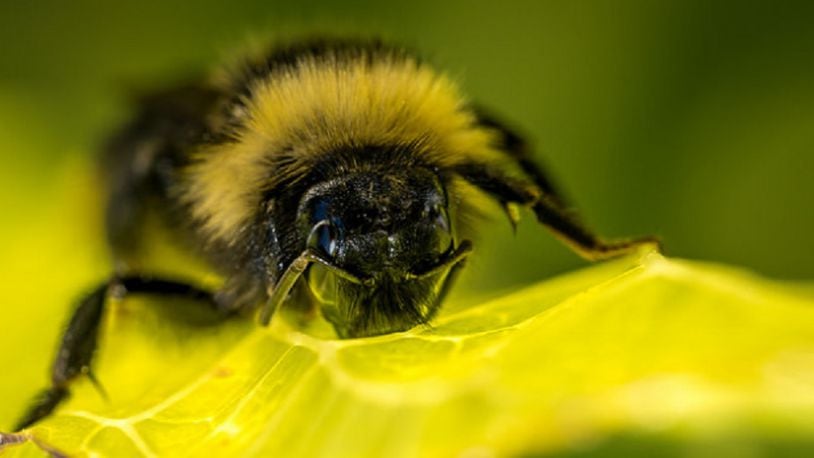The bees have learned to push a ball into a hole to receive a reward, New Scientist reported.
Scientists know that bees can learn to pull a string to reach an artificial flower containing sugar solution. Bees sometimes have to pull parts of flowers to access nectar, so this isn't a difficult concept to learn. So Olli Loukola at London's Queen Mary University tried a more complex task.
Loukola wanted to see if bees could learn to move an object that was not attached to a reward, New Scientist reported. His team built a circular platform with a small hole in the center that was filled with a sugar solution. A researcher showed the bees how to “putt” a ball across the “green,” using a plastic bee on a stick that demonstrated how to move the round object.
The researchers trained three groups bees differently, New Scientist reported. One group watched a previously trained bee solving the task; another was shown the ball moving into the hole, pulled by a hidden magnet; and a third group was given no demonstration, but was shown the ball already in the hole containing the reward.
The researchers then let the bees do the task on their own. The bees that watched others move the ball were the most successful and took less time to solve the task. Bees that saw the magnetic demonstration also were more successful than those that did not view it.
When the bees were trained with three balls placed at different distances from the hole, most of the successful bees moved the one closest to the hole. This showed that they were able to make generalizations to solve the task more easily, rather than copying exactly what they had seen, New Scientist reported. They also succeeded when faced with a black ball after being trained with a yellow one, showing they weren’t just attracted to the specific color.
“They don’t just blindly copy the demonstrator; they can improve on what they learned,” Loukola said. He thinks this cognitive flexibility could help the bees forage successfully in changing natural environments. “This ability to copy others and improve upon what they observe, I think that’s really important.”
About the Author
